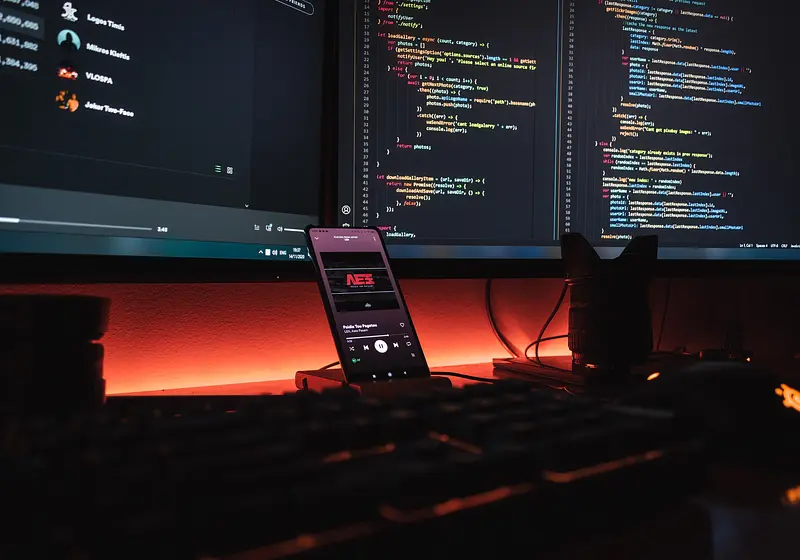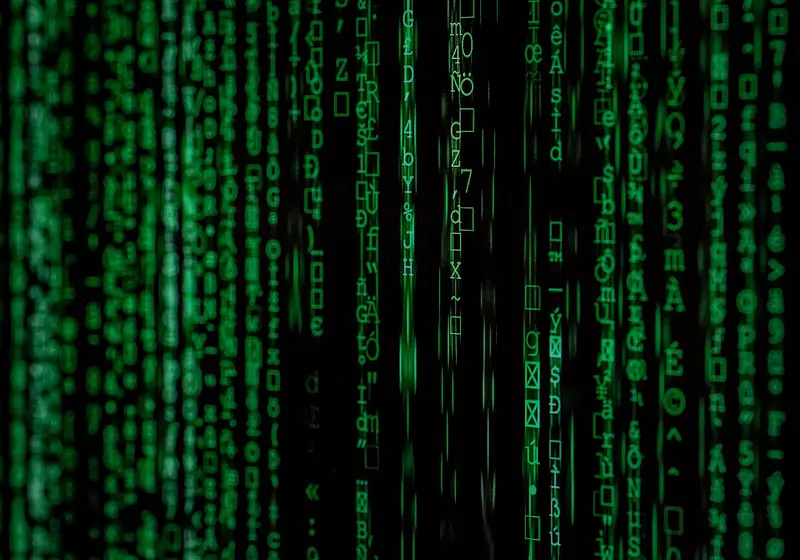Steve Jobs once said, “everybody in this country should learn how to program a computer because it teaches you how to think.”
Indeed, as we continue to evolve towards a tech-focused and data-driven world, programming is becoming a significant tool in our lives.
Every day we are surrounded by computers, be it a phone, laptop, car, washing machine, you name it! What they all have in common is the language they “speak” — the language of computers. In simpler terms, all these devices need to be programmed.
Therefore, learning to program is invaluable. Moreover, with each passing day, millions of jobs are being created in the IT department. These jobs are the new hot items, and are well paid!
As for me, I've always liked the thought of having a career in IT. Nonetheless, career or not, in this gigantic world of data, learning how to program is important. Here's why.
1. Develop logical thinking and problem-solving skills
'Coding is about solving problems. That’s the essence of writing computer programs: they should solve problems for us.'
When programmers are given a problem to solve, they don't just start to code right away. The first step to solving a problem is to define it clearly by breaking it down into simpler steps. For example, if you need to change the wheel on a car, you might need to follow instructions from a manual.
The instructions can be referred to as an algorithm, which is a sequence of steps that can be carried out to perform a task. If the instructions are not properly followed in the correct logical sequence, the process might be much more tedious and impossible.
When learning to program, you develop the habit of working in a very structured format. By working strategically, you are gradually programming your brain to break every problem down to bits and understand it better. You start thinking logically, giving rise to more creative and effective solutions as well as improving your cognitive ability.
Do non-programmers ever approach a problem like this? Rarely!
2. Opportunity to generate income
Apart from being billionaires, Mark Zuckerberg, Elon Musk, and Bill Gates all started coding at a very young age. This proves that coding can be a way of generating high income.
Furthermore, as the world moves towards automation, the demand for programmers is increasing exponentially, and since not many people know how to code, programming makes you irreplaceable in the job market. Furthermore, companies are always on the lookout for programmers, and, therefore, with more and more job openings, it can be considered a very stable job. That said, the average payment is much higher than what you would expect. Moreover, jobs such as software development, web development, and others seem to have a good career outlook for the coming decade.
3. It is the language of the future

Photo by Christina Morillo from Pexels
Living in an era of technology, where technological growth is nowhere close to stopping, programming is basically becoming the language of the future. More and more people are learning how to code today than ever before. In some countries, programming is taught from Grade 2, meaning it's as important as any subject taught in school. Even in college, most majors require programming knowledge even if it is not computer-related.
4. It looks great on your resume!
Knowing how to program can make a great first impression on your resume. It makes you stand out, especially when applying for a job.
Besides, I've personally noticed whenever people hear that I'm a computer science student, they are often in awe. Even when talking to school friends about programming, they always seem to be impressed.
5. It gives you the power to create
Have you always dreamed of creating something that will impact the lives of many? — Programming can make it happen! In programming, a single line of code can impact a million lives. Learning programming can thus help you in changing the world for the better, as coding gives you the power to create.
You can sit down and create something from scratch - isn't that amazing? You get to turn your vision into a reality, and you get to make money.
For example, apps such as Instagram and Snapchat, built by one or two people, with no particular crazy features then, are now used by billions of users. The founders are also making tons of profits by the minute.
Moreover, you also have the opportunity to make your life easier. For example, you can program an automated task to avoid doing repetitive and boring tasks, or just with a single tap on your smartphone, you can switch off your electrical appliances.
I once watched a YouTube video where the youtuber stated that she made a program to plan her meals. With the help of her programs, she could also easily find out which groceries need to be bought.
6. Creates job flexibility
Programming, a transferable skill — a set of skills and abilities which can be applied to a wide range of different jobs and industries, can be helpful in case you want to switch careers. Employers know that workers with transferable skills have an extensive set of skills they can make use of whenever necessary. For example, someone with analytical skills can likely examine a problem from all sides and help break down the options that exist for solving it.
Problem-solving skills, analytical reasoning, and critical thinking, skills acquired through programming, can demonstrate that you are flexible in an ever-changing world. This can increase your chance of getting hired in various fields, and it will also be easier to navigate through numerous careers.
7. Helps With understanding technology better
Despite living in a digital world and using the internet every few seconds (50% of our time), very few people understand how they work. By learning how to program, you will have a basic understanding of how digital functionalities operate. You will also become familiar with software, programs, devices and websites, making it easier to adapt to new technology tools.
8. Enhances teamwork

Photo by cottonbro studio from Pexels
Programming can be done solo, but big projects are often done in teams. Coding helps build team spirit as well as developing leadership skills (further examples of transferable skills).
Sometimes, working in teams is a hassle. Trust me, I hate teamwork, but often it can come in handy when coding. When working in groups, the work can be done in a shorter period of time and with the utmost creativity, since everyone is sharing their views and giving ideas.
9. You can start your own business
If you always wanted to become an entrepreneur, your programming skills might be of great help in setting up your business. Most entrepreneurs nowadays have their own website.
Creating your own website might help cut down expenses and possibly help in making more profits. Or if you are just getting started and have no money to hire a software developer, you can do it by yourself. Let's be honest, no one can develop your idea better than you!
10. You will feel accomplished
“Hello world!” is basically the first program written by every beginner programmer, and despite being the easiest program, the heartfelt happiness felt when we finally see the output is immeasurable.
Now imagine: after several brainstorming sessions and working towards a solution, your program finally executes properly. I swear, these are the proudest moments when coding. Not only will you feel accomplished, but you will slowly turn into this solution-driven, optimistic person, as programmers have to think logically about a problem.
Once you are used to coding, you stop giving up on other difficult situations in your day-to-day life as well. You become patient as you know a solution does exist. It just needs some more effort, just like what happens when you create a program, run it, and debug it several times to reach the perfect solution.
My programming journey:

Photo by Nemuel Sereti from Pexels
I took A-Level computer science and recently sat my final exams. Long story short, despite being a computer science student since Grade 10, I started to program in my final year of high school. I know you might be wondering how I sat for my exams if I just learned to code. We didn't have any 'practical' programming classes at school, despite programming being compulsory in our syllabus.
In Grade 10 and 11 (O-Levels), I didn't feel the need to start coding. Nevertheless, I tried to learn online but wasn't motivated enough to pull through. I was however, familiar with a few Visual Basic syntaxes and could manage writing small programs using pseudocode and a programming language. Finally came A-Level, which is a lot harder and the programs we had to write were quite complex. At this point, although I loved the subject, it felt like a burden because of the 2 programming papers.
With my dad's encouragement and despite my struggles with programming and innumerable failed attempts before, I finally up made my mind to do whatever it takes to finally be able to code.
Normally, months before the exams we are given a 'pre-release material' containing tasks to be written in program code. With the use of online resources and books, I then started to code in an attempt to try out the questions from the pre-release. After countless sleepless nights and numerous failed executions, I could finally get a grasp of programming.
Practicing was what made it easier and ultimately, the “eureka” moment happened. I could code!
If you are in the same situation, don't give up! It might seem hard and impossible now, but there's nothing compared to the immense joy you'll feel when your first program executes perfectly. Keep on practicing and remember, a simple “;” could make a huge difference.
Programming can be hard to keep us, with at first, but regular practice is the medication to becoming a good programmer. Besides, programming opens up a myriad of opportunities for you.
“Just because you fail once, doesn’t mean you’re going to fail at everything. Keep trying, hold on, and always, always, always believe in yourself, because if you don’t, then who will, sweetie?” — Marilyn Monroe
How to get started?

Photo by Pixabay from Pexels
Did this article convince you to start programming, or have you always had a yearning to learn to code but have no idea where to get started? — Don't worry, we've got you.
If you are a total beginner with no particular knowledge of computer science, this might be an easy and fun way to learn computer science and coding.
If you want to learn a programming language, python is recommended for programming newbies. It is simple to understand with little to no syntax rules, and uses an English-like structure.
Good luck!













.jpg)

